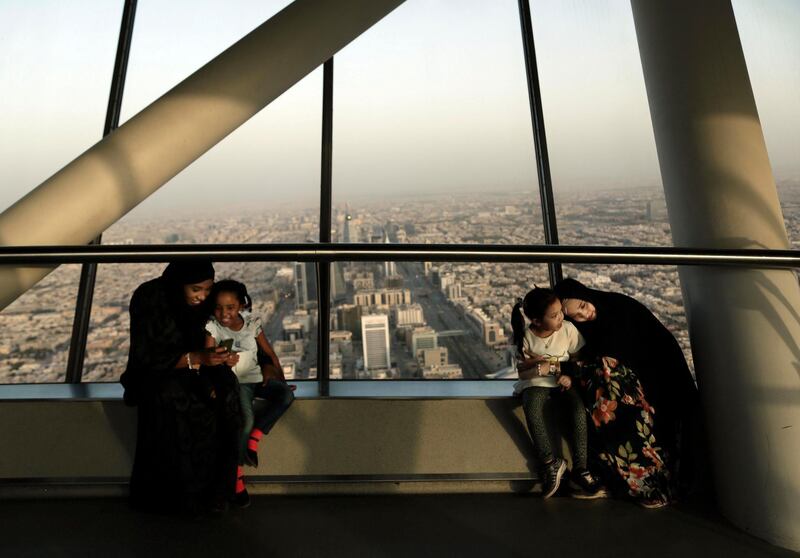Saudi Arabia, the world's biggest oil exporter, will forge ahead with reforms next year, which include privatisation of state entities and boosting foreign direct investment to help balance the kingdom's budget by 2023.
The Arab world's biggest economy forecasts its unemployment rate to start declining next year from 12.9 per cent, as the kingdom prepares five sectors to be privatised in the first quarter of 2019.
Riyadh also expects to continue to attract FDI, which more than doubled to 13 billion Saudi riyals (Dh12.7bn) in 2018, Economy and Planning Minister Mohammed Al Tuwaijri said on Wednesday.
The minister's comments came a day after the kingdom revealed its biggest budget, which estimates spending to increase 7.3 per cent from 2018, as it seeks to propel growth and lower fiscal deficit. The Saudi economy is projected to have bounced back to growth this year expanding 2.3 per cent after contracting 0.9 per cent in 2017. The economy is forecast to expand 2.6 per cent in 2019. The government maintained it is on track to balance the budget by 2023.
“Overall it’s a budget that seeks to balance the need for continued fiscal discipline, with the desire to keep the domestic economy from stalling,” said James Reeve, chief economist at Samba Financial Group, one of the kingdom’s biggest lenders.
____________
Read more:
Saudi Arabia reveals largest budget to date
Saudi Arabia unveils biggest ever budget to propel growth
Saudi Arabia's budget deficit narrows to 8.9% for 2017
____________
The reforms that Saudi Arabia is undertaking as part of its Vision 2030 agenda seeks to wean the kingdom off oil income, create jobs for Saudi nationals, generate new revenue streams and revitalise the private sector.
The government introduced 5 per cent VAT this year and increased energy prices, which were offset by the introduction of allowances to Saudi nationals to help lower living costs.
King Salman issued a royal decree before the budget announcement on Tuesday, declaring the continuation of the monthly allowances for another year in 2019.
"Over the next year and in the medium term, fiscal policy aims to focus on spending priorities with social and economic returns on operational expenditures, such as citizen's account, private sector motivation and vision realisation programs, while maintaining the goal of raising the efficiency of government spending," tweeted Ihsan Buhulaiga, a Saudi economist.
One salient feature of the 1.106 trillion riyal-budget for 2019 is the 193 billion riyals spending on education overtaking military expenditure as the largest single item. Military spending is set to fall by 12 per cent to 191bn riyals. The third-largest item is health care and social security, with a budget of 172bn riyals. Capital spending will rise 20 per cent to 246bn riyals from a year earlier.
“The reduction in spending on the military is obviously helpful as it frees up more revenue for social spending,” said Mr Reeve. “The projected increase in capital spending will also be welcomed by contractors.”
The government has forecast fiscal deficit will narrow to 4.2 per cent of the gross domestic product in 2019, down from 4.6 per cent of the GDP in 2018. Public debt, which should not exceed 30 per cent of the GDP, is projected to reach 21.7 per cent of the GDP in 2019, up from 19. 1 per cent in 2018.
“The government might need to adjust spending lower during the course of the year if it wants to see the deficit narrow,” said Mr Reeve. “The growing role of non-oil revenues is important and encouraging, but non-oil revenues cannot, for the moment, fully compensate if oil prices stay at around $60 per barrel.”






